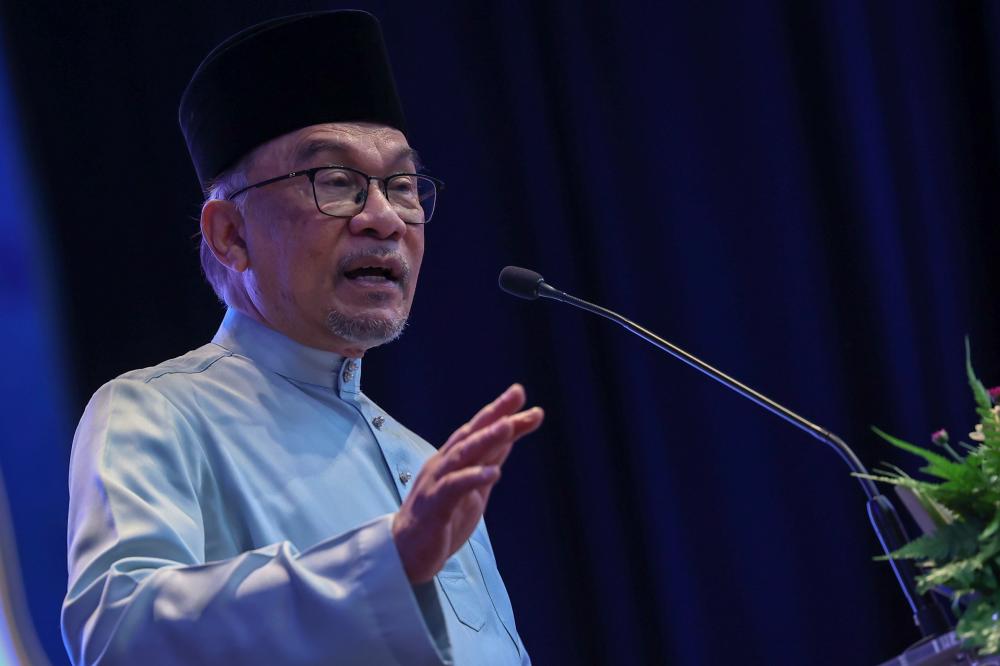KUALA LUMPUR: It has been almost 54 years since the shining pillar of the country’s unity, the “Rukun Negara” (National Tenets) which forms the basis for the National Unity Policy, was introduced. Still, it has yet to achieve the desired results.
Some may not accept the statement, but the fact is, there are still many who are not aware that the Rukun Negara, declared on Aug 31, 1970, contained not only the five tenets but also the preamble stating the reasons for and intent of the five principles.
A few experts interviewed by Bernama believe a positive change with the MADANI government, following an initiative by the Ministry of National Unity, approved by the Cabinet in July last year, requiring the Rukun Negara pledge to be read with the preamble.
“Many people do not know that the Rukun Negara actually contains two important parts that are the key to racial harmony and unity for Malaysia’s success and stability.
“This is because, all this while, at ceremonies, and schools, the focus is on the second part which is the recitation of the pledge, Belief in God, Loyalty to the King and Country, Supremacy of the Constitution, Rules of Law, Courtesy and Morality,” said Prof Datuk Dr Sivamurugan Pandian.
However, according to the senior lecturer in Political Sociology, Centre for Social Science Studies, Universiti Sains Malaysia (USM), the first part, also referred to as the preamble, should be embraced together with the five principles because they are the objectives or aspirations of the Rukun Negara.
He said this was because they are interlinked, adding that the objective or the first part of the Rukun Negara guides the country to achieve the desired Malaysian society.
The second part, which he said, is the five principles, can be likened to a path or guide that needs to be embraced in realising the aspiration or objective of the Rukun Negara.
“When (the second Prime Minister) Tun Abdul Razak Hussein launched the Rukun Negara, he emphasised that it should not be just a document but should be practised and become our flesh and blood.
“For me, for us to apply the Rukun Negara in our daily lives, it is important that we appreciate and understand the first and second parts of the Rukun Negara because it is a very important tool for the building of a Malaysian nation and strengthens unity,“ he said.
Meanwhile, Universiti Utara Malaysia (UUM) deputy vice-chancellor (Student and Alumni Affairs) Prof Dr Ahmad Martadha is of the view that the government’s move (requiring the recitation of the Rukun Negara with the preamble), which has been in place for more than five months, should be made mandatory.
He said the first part (preamble) has been ignored for too long and the government needs to be more aggressive in highlighting it.
“Now, with various issues involving sensitive matters such as 3R (race, religion and royalty), which cropped up because many people still do not understand the Rukun Negara, not just the first part, but also the five principles they recite.
“The Rukun Negara is the core of the Federal Constitution and if we don’t appreciate, embrace and understand it, it means we don’t understand the essence of the Constitution. It is important to understand both (preamble and principles) because the appreciation of Rukun Negara completes an individual as a Malaysian citizen,“ he said.
Ahmad said the Rukun Negara can be regarded as a commitment of the Malaysian people and should be recited not only at schools, institutions of higher learning or government offices, but also by employees in the private sector.
“With the start of the national level Unity Week celebration yesterday, it is the best time for the government to take the opportunity to announce that the Rukun Negara must be recited along with the preamble at every meeting.
“The Rukun Negara can no longer be regarded to serve simply as a guideline because we do not want the unity we have enjoyed so far to be eroded, for example, by sensitive issues such as the 3Rs, which happen because we fail to appreciate the Rukun Negara,“ he said.
However, a sociopolitical analyst at Universiti Malaya (UM), Associate Prof Dr Awang Azman Awang Pawi opines that efforts to strengthen the appreciation of the Rukun Negara cannot be left to the government or schools alone.
He said it requires a two-party chain of cooperation, namely the family because they influence children in early education.
“Rukun Negara is the country’s ideology, but what is happening is that it is not fully appreciated, unlike in Indonesia where the people understand and appreciate the Pancasila regardless of ideological differences and this has a very good effect on unity,“ he said.
He said this in response to Prime Minister Datuk Seri Anwar’s call for youth to strengthen and preserve the unity in the country.









